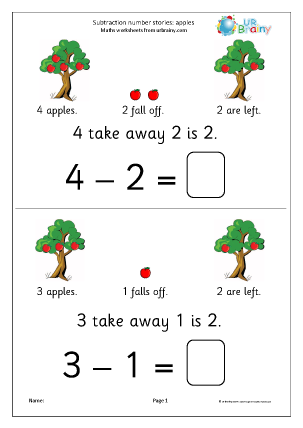7 phrasal verbs with take and 30 meanings. At first glance, everything is simple, but at the second – no

In one of past materials we told you about phrasal verbs that contain the word get. The article was received very well, so we decided to make another one. This time with the verb take.
We counted at least 65 phrasal verbs and their meanings with take – and it is possible that there are more. But in this article we will give examples of the most common that native speakers often use in everyday life. Naturally, with a bunch of examples. Go.
Take away
Take verbs have a lot of variation, which depends on the context. So let’s start with take away and its values.
In English courses, four meanings of the phrase are usually studied, and one more remains unknown up to the Advanced or even Fluent level.
The first and foremost meaning is to pick up, take away, move. Moreover, it works great both literally and figuratively.
If you have five apples and take away two, you’re left with three. – If you have five apples, and then remove two of them, you will have three.
They can’t take away my freedom! “They can’t take my freedom.
The classic rock band Ramones will help illustrate.
When translated, the phrasal verb take away is very variable. Therefore, you should always pay attention to the context. For example, the phrase “take away your beard” means “shave off your beard.”
The second common meaning is to block or interfere.
I hate that my job takes me away from home on weekends. “I hate that my job keeps me at home on weekends.
The third is to take food to go.
Do you want to eat here or take the meal away? – Do you want to eat here or take food with you?
Take away or takeaway is a British phrase advantage. In the US, take out or to go is more commonly used.

Fourth, subtract as a mathematical action. Yes, a complete synonym for the word minus. In American schools, the phrasal verb is used almost more often than the usual minus.
Five take away two equals three. – Five minus two equals three.
There are examples like this in elementary school textbooks:

Now a little about the rarer values. There are only two of them.
The fifth is to keep it in memory. Its, of course, not a computer. It is often used to mean “remember something to come back to later.”
I’ll take his idea away and we’ll talk about it later. – I will remember this idea and we will talk about it later.
Take on
If the meaning of the previous phrasal verb was in at least one semantic field, then everything is out of place.
And let’s start with a song that has long been a meme. She shows right away four meaning of phraseological unit.
There is a phrase in the chorus “Take on me, take me on”… And it’s as ambiguous as it can get. The first part can be translated as “touch me” and as “give me a chance.” The second can mean both “take me” in the same sense, and how “accept my challenge.”
The most interesting thing is that all meanings are equally well perceived in the context. Therefore, everyone understands the words of the song to the extent of his depravity.
Take on can also mean “Take over”. This is the fifth. Responsibility, duties, carry – so to speak, a more specific form of the verb take.
We are ready to take on such an obligation immediately. – We are ready take on such a commitment is immediate.
The sixth meaning is to hire someone to work. A common phrasal verb for recruiters along with ordinary and familiar hire. Ordinary meaning, without nuances and connotations. Compared to others, it’s boring.
They’ve agreed to take him on for a year after he finishes college. “They promised to hire him for a year after graduating from college.
Seventh – bring, deliver. Usually in this meaning it is actively used by logisticians.
The ship took on cargo in Norfolk yesterday. “The ship delivered cargo to Norfolk yesterday.
Take back
It’s a little easier with this phrase. Because back seems to be hinting that everything here will be connected with the word “back”. And in fact it is. Probably, this is one of the few phrasal verbs, all the meanings of which can be understood based on the context.
The first meaning is “take something”. The most logical and common meaning.
You owe me 1000 dollars. I wanna take my money back. “You owe me $ 1,000. I want to collect my money.
In general, with the meaning “take back” you can use both get back and have back, and many more different phraseological units. Here everything is decided by the word back.
The second is “take your words back.” A spoken version of a phrase that is used quite often.
No, I was wrong. You’re a good actor, I take it all back. – No, I was wrong. You are a good actor, I take my words back.
The third is to remember the past, mentally return to the past. This meaning is well illustrated by the track Logic – Take It Back
Take it way back is also a valid variation of the phrase. Its meaning does not change from the word way, it just sounds a little more pompous.
The fourth is to repeat something. Synonym for repeat. It is most often used as an artistic substitute for an ordinary word. For example, just like in the track by Justin Timberlake.
This is where you need to be a little more careful. Because “Take back the night” can mean both “Let’s remember that night” and “Let’s repeat that night”. In the song – the second option, but the meaning depends entirely on the context.
Fifth – to resume the relationship after breaking up. Formally, this is just one of the meanings of the phrase “take back”, but in everyday speech it is used very often.
She has forgiven him, and taken him back. – She forgave him and is now with him again.
And for a musical example, we use the popular American group from the 70s and 80s The fantastic four, which existed long before Marvel registered this brand.
Take aback
Not to be confused with take back. This phraseological unit has everything one meaning, but it is very different from the previous ones. It translates as “Shock, surprise”…
Like that:

I was a little taken aback at the directness of the question. – I was a little surprised by the directness of the question.
This phrasal verb is not used as often, but it has the most mistakes among students who are learning English as a second. If many other phrases with take can be understood using logic, then this one will not work. You need to know for sure.
Take off
Very often, students learn only one meaning of this phrase. But in reality there are more, much more.
The first and known to everyone is to take off your clothes.
It was hot so I took my jacket off… “It was hot, so I took off my jacket.
Actually, the semantic field here is rather narrow. Here it is either quite decent to take off some piece of clothing from oneself, or to undress completely and everything connected with it.
And the example unexpectedly drove up from Lazarev. The song is not cunning, but the phrasal verb is there exactly in the meaning we are talking about.
Actually, everything is with the main meaning. The rest of the meanings are either colloquial, or slang, or rare. We will also tell you a little about them.
The second is to get off the ground. This is usually said when the aircraft begins to take off and the landing gear loses contact with the runway. Here the emphasis is on the take-off process, and not on the flight itself.
The plane has been cleared to take off from runway 3. – The plane was cleared to take off from runway 3.
The third is to break away… Slang phrase that is directly related to the previous meaning. Also “to have fun”, but in the sense of “hang out and have a good time.” In a cultured society, it is considered low vocabulary, but this does not prevent it from remaining popular among young people.
They also use it in songs:
The fourth is to imitate, to parody. It mainly concerns performances with sketches and stand-ups, in which the artist parodies the voice and / or behavior of famous personalities.
Kirill Nechaev takes off lots of popular singers. – Kirill Nechaev parodies many popular singers.
Fifth – to become successful, prosper, succeed. There are no surprises here, everything is pretty simple.
The business has really taken off this year and has made quite a profit. – The business is really booming this year and provides income.
Sixth – go, go. Synonym for depart. But you won’t hear it at train stations and airports – it is considered informal.
Your plain is takes off in 15 minutes. Hurry up! “Your plane leaves in fifteen minutes. Hurry up!
Take over
Interestingly, many take idioms often duplicate meanings. This is one of the reasons why they are so confused. And the very juice is that they often do not add any nuances at all.
The first meaning is to become successful. Doesn’t it look like anything? Take over often has the same meaning as one of the meanings of the phrase take off. There is no difference at all – in this regard, they are completely identical.
The second is to take responsibility. Yes, yes, this is also a coincidence. We had this with the phrase take on. Therefore, immediately further, to those meanings that at least are not repeated.
The third is to conquer, capture. Any synonyms that convey the meaning of taking something by force. Mostly used in the context of history and military affairs. The closest match is the word conquest.
Ancient rome took over all of Europe and a bit more. – The Roman Empire conquered all of Europe and a little more.
The fourth is to buy out a stake in the business. This is already a rather narrow semantic field.
Elon Musk is to take ABC Group over this week. – Elon Musk is going to buy out ABC Group this week.
But there is one peculiarity. Take over sounds a little more dismissive than neutral buy out. In terms of meaning, it is closer to “grabbing” than just “getting”. Correlation with the previous value can be traced quite clearly.
If in a broader sense, then take over can be interpreted as “laid his paws.” This phrasal verb still carries a tinge of rudeness, so you should use it carefully.
Take for
The last phrasal verb for today. Otherwise, if we describe all the meanings in full, the article runs the risk of turning into an endless long post.
The first and foremost meaning is “take for someone.” No surprises. Colloquial phrase, but quite often used. Especially in the form of the next question.
What do you take me for? – Who do you think I am?
Just like in the Pixie Lott track:
Also, the phraseological unit can be used in the sense of “being identified, taking someone for another.” Therefore, you need to use context wisely. And in the conversation there is also intonation. Confusion here is easy.
Is there some more second, the slang meaning of the phrase – “toss for money.” And this is just the perfect translation of the idiom into Russian. Exactly with the same meaning and character of the phrase.
John is angry that Jack took him for $ 100K. – John is angry that Jack threw him 100 thousand dollars.
As a result, it turns out that about half of the meanings of phrasal verbs with the word take can be figured out from the context of the sentence. And that’s a lot. So it can be called the friendliest to English learners. But sarcastically, of course, because the other half of the meanings needs to be learned. They are often strange and not very obvious. However, like other phrasal verbs. That is why you have to memorize dozens of options, how they can be interpreted.
Do you want to learn phrasal verbs without cramming and with interesting examples from real life? Sign up for a free trial lesson with a teacher and improve your English.
Online school EnglishDom.com – we inspire to learn English through technology and human care

For Habr readers only first lesson with a tutor in an interactive digital textbook for free! And when you buy classes, you will receive up to 3 lessons as a gift!
Get a whole month of premium subscription to the ED Words app as a gift… Enter promo code june_2021 on this page or straight in the ED Words app… The promo code is valid until 08/01/2021.
Our products:
-
Strengthen your speaking skills and find friends in conversation clubs
-
Watch a video of life hacks about English on the EnglishDom YouTube channel




